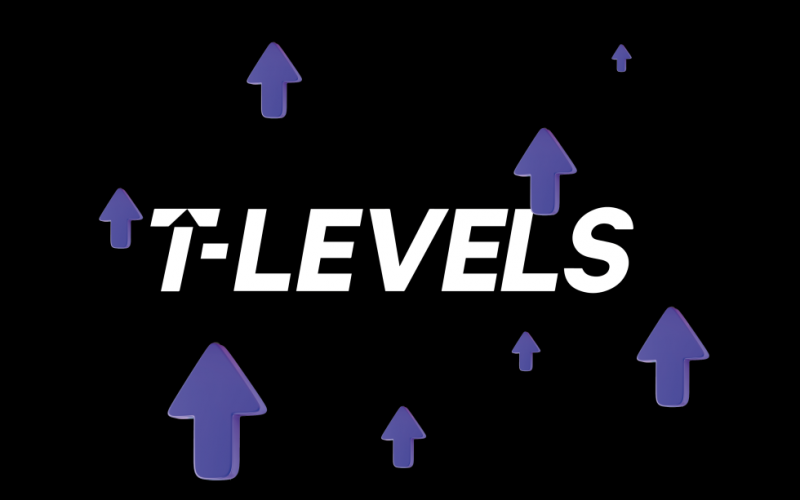As students in the United Kingdom embark on their educational journey, they encounter various qualifications and pathways to higher education. One of the relatively newer options gaining prominence is the T-Level qualification.
T-Levels offer a more vocational and practical approach to education, designed to equip students with the skills and knowledge needed for specific industries. If you’re considering T-Levels and wondering about their UCAS points value, this article will provide you with essential information.
Table of contents
About UCAS Points
The Universities and Colleges Admissions Service (UCAS) is the central organization responsible for handling university applications in the UK.
They use a system of UCAS points to standardize and compare different qualifications. UCAS points help universities assess the academic qualifications of applicants and make informed decisions regarding admissions.
UCAS points are typically assigned based on the level, size, and grade achieved in a qualification. They provide a way to compare different qualifications, including A-Levels, BTECs, and T-Levels, in a standardized manner.
Why are UCAS Points Important?
UCAS points play a vital role in the university admissions process. They provide a standardized way for universities to compare applicants from diverse educational backgrounds. When applying to universities, your UCAS points will be a crucial factor in determining whether you meet the entry requirements for your chosen courses.
While T-Levels offer a more practical and vocational approach to education, they are still recognized by universities as valuable qualifications. Universities are increasingly open to accepting students with T-Levels, as they understand the importance of hands-on experience and industry-specific knowledge.
The higher your UCAS points, the more competitive you become as an applicant for university courses.
Related Article: How Many UCAS Points Do You Need For University?
What are T-Levels?
T-Levels, short for ‘Technical Levels,’ are a type of vocational qualification in the UK designed to provide students with practical skills and knowledge relevant to specific industries.
They were introduced as part of a government initiative to reform technical education and offer an alternative pathway for students beyond traditional academic qualifications like A-Levels.
Each T-Level program is developed in collaboration with employers and industry experts to ensure that students gain the skills and knowledge necessary for the workplace.
Also, they are typically pursued by students aged 16-19 as a post-GCSE option. They offer an alternative to A-Levels and other vocational qualifications like BTECs.
How are T-Levels Graded?
T Levels are graded based on the following criteria: pass, merit, distinction, or distinction*. Upon completion of a T-level program, students will receive a nationally recognized certificate that provides a detailed breakdown of their achievements.
Additionally, this certificate confirms that the student has met the minimum requirements for mathematics and English qualifications.
How Many UCAS Points Do You Get For T-Levels?
Students who need to advance into higher education will actually want to see how UCAS points are allotted to their T-Level.
| UCAS Tariff points | T Level overall grade | A Level |
| 168 | Distinction* (A* on the core and distinction in the occupational specialism) | AAA* |
| 144 | Distinction | AAA |
| 120 | Merit | BBB |
| 96 | Pass (C or above on the core) | CCC |
| 72 | Pass (D or E on the core) | DDD |
Are T-Levels Worth It?
Deciding whether T-Levels are worth it depends on your individual goals, interests, and learning style. Here are some factors to consider when determining if T-Levels align with your educational and career aspirations:
- Career Goals: T-Levels prepare students for specific industries. If you have a clear career goal in a field like healthcare, construction, digital technology, or engineering, a T-Level program unique to that industry could be an excellent choice.
- Interest in Practical Learning: If you prefer learning by doing and want to gain real-world experience through work placements, T-Levels are well-suited to your learning style.
- Maths and English Skills: If you have a strong foundation in these subjects or are willing to work on improving your skills, T-Levels can be a viable option.
- Long-Term Goals: Consider your long-term educational and career goals. T-Levels can be a pathway to higher education or direct entry into the workforce.
- Flexibility: If you value a structured curriculum with a blend of academic and practical components, T-Levels may be appealing.
Read: How to Get Extra Get UCAS Points: 14+ Effective Ways to Try in 2023
FAQs
T-Levels were introduced gradually, with the first wave of courses becoming available in selected subjects in 2020 and more subjects being introduced in subsequent years.
Your T Level will be worth UCAS points (a T Level Distinction* is worth the same as 3 A levels at A*) and will be recognized by universities and other education providers so you can choose to continue studying if you wish.
If you don’t have enough UCAS points to meet the entry requirements for your desired university course, there are several options and strategies you can consider:
1. Clearing
2. Alternative Courses
3. Gap Year
4. Foundation Year
5. Apprenticeships
6. Re-apply Next Year
Conclusion
Conclusively, T-Levels are an exciting addition to the UK’s educational landscape, offering students the opportunity to gain practical skills and knowledge in their chosen industries. While the specific UCAS points for T-Levels may vary, they are expected to be competitive with other Level 3 qualifications like A-Levels and BTECs.
To get the most accurate information on UCAS points for T-Levels, it’s essential to check the latest updates on the UCAS website or consult with your educational institution. Ultimately, T-Levels can be a valuable pathway to higher education and future career success.

